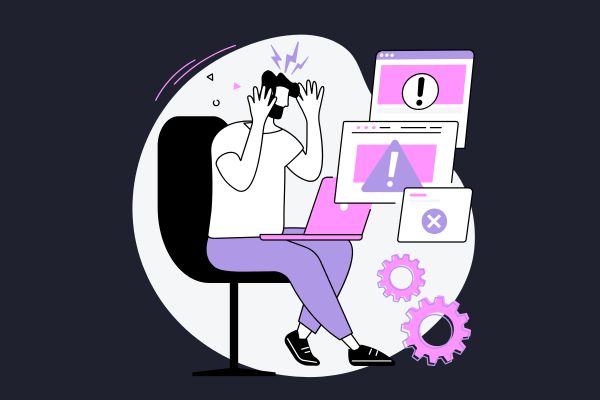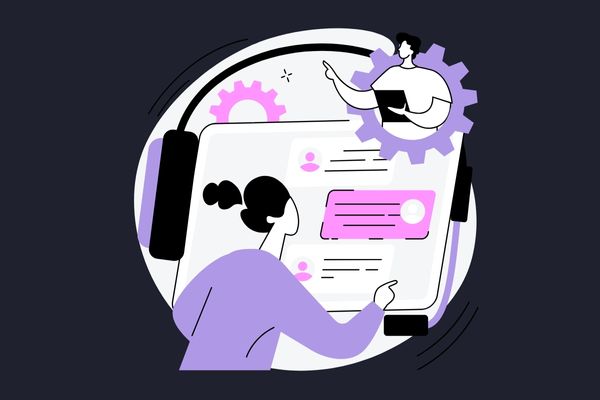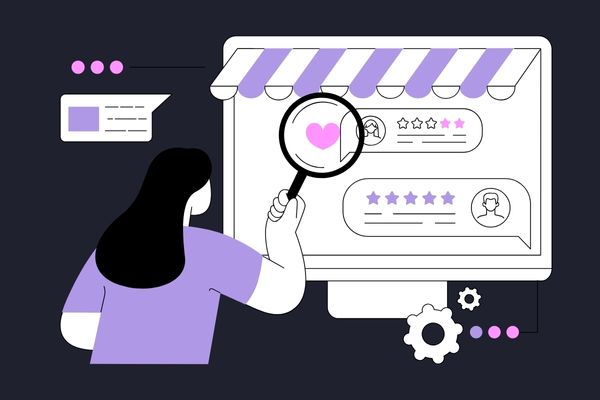Last Updated on May 26, 2025 by Becky Halls
If you’ve ever been tempted by an ad that screams “1,000 backlinks for $9.99,” you’re not alone. After all, we love a bargain. Cheap jeans? Yes. Cheap garlic press? Sure. But cheap links?
That’s where things get dicey.
In the wild world of SEO, links are like votes. The more high-quality votes you have, the more likely Google is to trust and rank your site. But not all votes are viewed the same, and buying cheap links is often like stuffing a ballot box with coupons from a dodgy corner shop.
So should you ever buy cheap links? What are the risks? Are there any budget-friendly link-building tactics that don’t involve spamming your way into a penalty?
Let’s find out.
What Are Cheap Links (And Why Are They So Tempting)?
Cheap links usually refer to backlinks sold at low prices – typically under £30 per link or sold in bulk packages (like “100 links for $25!”).
They’re tempting because:
-
Link building is hard
-
Real guest posts cost £100–£500+
-
Outreach is exhausting
-
Fiverr exists
You might think: “Even if 10% of these links help, that’s still a win, right?”
But here’s the catch: Google is not easily fooled anymore. And most cheap links come with serious downsides.
Why Cheap Links Are Usually a Bad Idea
Here’s what typically goes wrong when you buy cheap links:
1. Low-Quality Domains
Many cheap link providers use:
-
Expired domains with zero trust
-
Private blog networks (PBNs)
-
Sites made solely for selling links
-
Domains with spammy link profiles
These sites may have “DA 30+” on paper, but if you look under the hood, you’ll find:
-
No organic traffic
-
AI-generated or spun content
-
Zero real users
-
Outbound link spam galore
Google knows what these sites are. And trust us, they’re not impressed.
2. Irrelevant Placements
One minute you’re getting a backlink from a “business tips” blog. The next, that same page has links to payday loans, CBD gummies, and something about alien crypto coins.
Relevance matters. Getting links from unrelated sites, especially spammy ones, can dilute your authority or trigger manual reviews.
3. Toxic Link Profiles
A sudden spike in low-quality backlinks can:
-
Trip Google’s spam filters
-
Trigger algorithmic devaluation
-
Lead to manual actions
-
Tank your rankings (and your confidence)
And if you don’t know how to spot and disavow toxic links… well, you’re stuck cleaning up the mess.
4. Over-Optimized Anchor Text
Many cheap link services stuff your exact-match keywords into every anchor.
Example:
“Best affordable red running shoes UK” x 100
That’s not natural. And it’s exactly what Google’s looking for when it hands out penalties.
Are There Any “Good” Cheap Links?
Honestly? Rarely. But budget-friendly options do exist.
The key is understanding the difference between:
-
Cheap and nasty (🚩 random, spammy links from irrelevant blogs)
-
Cost-effective and strategic (✅ niche-relevant placements, even on mid-tier blogs)
If your budget is tight, here’s how to stretch it without resorting to SEO sabotage:
Smarter Alternatives to Buying Cheap Links
1. Use a Platform Like 3way.social
Instead of buying backlinks, use 3way.social to ethically exchange them.
-
Find relevant link partners in your niche
-
Use AI to suggest safe, smart swaps
-
Build link equity without shady tactics
-
Track what’s live, what’s pending, and what’s helping
It’s like networking for backlinks – without the spam folder drama.
2. Offer Guest Posts to Smaller Blogs
You don’t need to start with Forbes.
Find smaller blogs with:
-
Real content
-
Niche overlap
-
Willingness to collaborate
Even a DR 20 site can drive traffic if it’s targeted – and won’t charge you £500.
3. Use HARO or SourceBottle (Free!)
Help A Reporter Out (HARO) connects journalists with sources. Respond to queries in your field and you could land a link from:
-
Major publications
-
News outlets
-
Industry sites
It’s competitive, yes – but it’s also free and 100% white hat.
4. Submit to Resource Pages and Roundups
These are often overlooked, and often free. Just reach out with your best content and ask to be included.
They’re especially common in:
-
Non-profits
-
SaaS tools
-
Education and startup niches
5. Steal Your Competitors’ Best (Affordable) Links
Use Ahrefs or Semrush to:
-
Filter by referring domains with DR 20–40
-
Reach out to similar sites with better content
You don’t need hundreds of links – just a few good ones in the right place.
What If I Already Bought Cheap Links?
First off, don’t panic. It happens. Here’s what to do:
-
Run a backlink audit (Ahrefs, Moz, or Semrush)
-
Identify spammy links (no traffic, irrelevant, shady TLDs)
-
Request removal or submit a disavow file in Google Search Console
-
Clean up anchor text diversity if needed
-
Build fresh, relevant backlinks to balance your profile
And don’t make it a habit. Google forgives, but it doesn’t forget.
Final Thought: Cheap Links Come at a Cost
We get it; link building is time-consuming and expensive. But when you go for cheap links, you’re often just outsourcing a future problem.
Instead, invest in:
-
Relationships
-
Transparency
-
Platforms like 3way.social that make smart link-building accessible and ethical
Your SEO deserves better than a dodgy link from “Top10CouponDeals.net.”
FAQ: Cheap Links
Are cheap links bad for SEO?
Usually, yes. Cheap links often come from spammy or irrelevant sites and can hurt your rankings if flagged by Google.
Can I get high-quality links on a budget?
Yes! Try guest posting, using HARO, or platforms like 3way.social for ethical link-building without breaking the bank.
How can I spot a bad backlink?
Check for poor domain metrics, irrelevant content, excessive outbound links, and suspicious anchor text.
What happens if I buy cheap links and get penalized?
You may see ranking drops or manual actions. Use Google’s disavow tool to remove toxic links and rebuild with quality.
Is there a safe way to get affordable backlinks?
Absolutely. Focus on relationships, relevant sites, and ethical exchanges. Avoid link packages and bulk deals.






